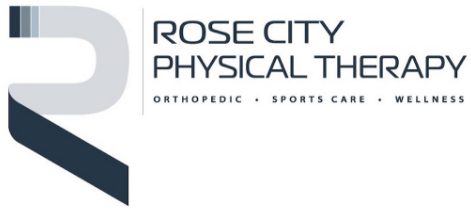JOINT NOISES: SNAP, CRACKLE, POP!

by Karl Kolbeck, PT, OCS, SCS, FAAOMPT
Snap, Crackle, Pop! Why do my joints sound like Rice Krispies? Is this normal? Is it a concern? What can I do about it?
A question I get from patients multiple times per week. We’ve all experienced it at some point. A crunchy knee when standing up or sitting down. A crack in the neck while turning the head. A click or pop in the elbow. And it can be disconcerting.
Don’t fret. It is normal.
Cracking or popping of joints is typical and is simply a release of gas pressure that builds up in the joints. Think of what happens when you pull a toilet plunger off a tile floor….you get a ‘pop’ as the negative pressure is released. It’s the same things our joints experience.
Our joints contain synovial fluid—joint oil—that cushions the ends of the bones, lubricates and reduces the friction and wear-and-tear, and provides nutrition to the joints. Synovial fluid is composed of a whole bunch of things with big long chemistry words I won’t elaborate on. But to clarify the cracking or popping, there are some gas by-products within the synovial fluid, including oxygen, carbon dioxide, and nitrogen. And it’s the release of the nitrogen chemistry bonds that cause the popping or cracking you hear randomly, or when deliberately popping your knuckles or getting a spinal manipulation (“adjustment”). We call it “cavitation.” Sometimes the pressure release—the popping—even feels good.
Grinding or crunchy joints, or more officially, crepitus, tends to occur as the years go on. I don’t like to say as we get older, so let’s say as we “mature.” I’m right there with ya!
This grinding or crunching tends to happen as joint cartilage experiences ordinary wear-and-tear (“degeneration” is what it’s called…a big word that sounds bad). Wear-and-tear on joint surfaces is normal, and yes, it is arthritis. Studies show that some joints (the knee, the spinal joints, and the AC joint of the shoulder) undergo regular degenerative changes as early as the mid-30s and get worse as we “mature.” And we don’t even know it as there is no pain or limitation of function. I say our joints get wrinkly and gray on the inside, just as we do on the outside.
With progressive joint cartilage wear, the joint surfaces roughen up a bit, and one can experience more noise as they rub against each other. And things can get noisy.
Now, suppose you have noises or sensations at a joint after strain or injury. In that case, it’s worthy of getting checked out by a physical therapist who specializes in orthopedic and sports-related injuries. This goes without saying due to the noise or sensation correlated to injury and other symptoms not randomly occurring. “Slipping” or “giving way” is often related to a ligament sprain and indicates instability at a joint. “Clicking” in the knee can be indicative of a meniscus tear, or if at the front of the knee, an alignment or tracking issue of your patella (kneecap) on the femur (thigh bone). If any of these symptoms sound familiar, give us a call. Muscle imbalance from tightness or weakness can create stress across joints, and if not addressed, your problem could worsen and start to interfere with activity.
In a nutshell, joints make noise, and if there is no pain, swelling, or limitation to your activity level, it’s nothing to be concerned about.
Karl Kolbeck, PT
Karl is co-owner of Rose City Physical Therapy and has been practicing orthopedic and sports physical therapy for 29 years. He is dual board-certified as an orthopedic clinical specialist (OCS) and sports clinical specialist (SCS). He specializes in shoulder rehabilitation and treating the injured runner and has taught shoulder rehab courses to physical therapists and physicians nationally for 15 years. His practice is closed to new patients. His primary role is business development, staff education, and mentorship to create excellence in care by all physical therapists at Rose City Physical Therapy.

